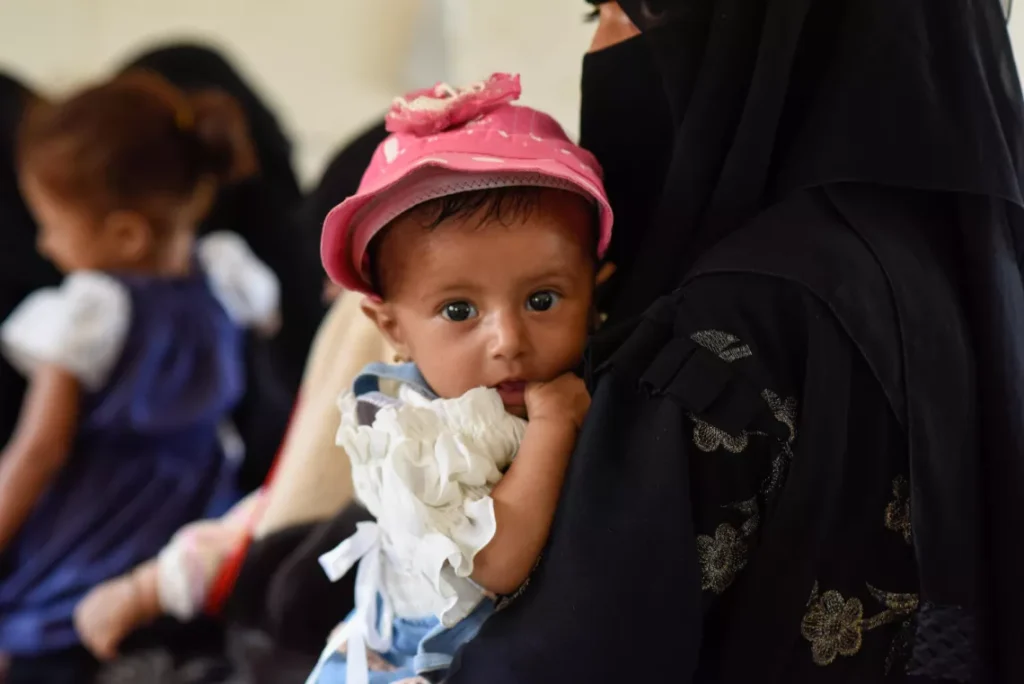How is the crisis affecting children?
Thousands of children have been killed or maimed since the beginning of the conflict, and thousands more have been recruited into the fighting. Years of conflict, misery and grief have left millions of people in Yemen in need of mental health and psychosocial services.
The ongoing humanitarian crisis has increased the vulnerability of children and women to exploitation, violence and abuse, child labour, killing and maiming, recruitment and use of children by parties to the conflict as combatants and in various support roles, domestic and gender-based violence, child marriage and psychosocial distress.
The conflict has exacerbated the ongoing malnutrition crisis in Yemen. Around 2.7 million children are suffering from acute malnutrition, including hundreds of thousands of children suffering from severe acute malnutrition – a life-threatening condition if not treated urgently. The damage and closure of schools and hospitals has also disrupted access to education and health services. More than 4.5 million children of school age do not attend schools, and those who go to school are forced to cope with overcrowded classrooms and overburdened and unequipped teachers.
What is UNICEF doing to help children in Yemen?
UNICEF is on the ground to save children’s lives, to help them cope with the impact of conflict, and to help them to recover and resume their childhoods. Conflict and violence have pushed more families into poverty and deprivation. UNICEF is helping treat severe acute malnutrition in children by providing essential therapeutic food and medical supplies.
Children are also being helped with victim assistance and education on mines and explosive remnants of war. Meanwhile, UNICEF and partners are rehabilitating damaged schools and establishing safe learning spaces.
Check here for the most up to date statistics on the situation in Yemen.



